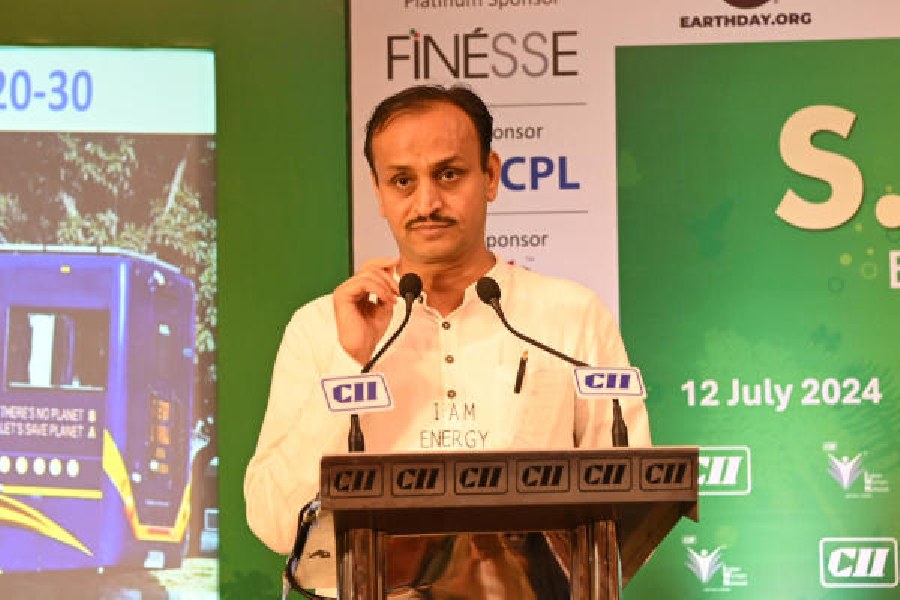Do less of what you are doing and that will help in combating climate change, a scientist who was in the city recently to talk about climate awareness told The Telegraph.
Chetan Singh Solanki, the founder of Energy Swaraj Foundation and a professor at IIT Bombay, said people need to understand that resources are finite and they need to limit their consumption.
“When someone asks me what to do to combat climate change, I tell them they should do less of what they are doing,” Solanki said.
“The size of the planet is not increasing. The amount of water, air, our minerals, they will not increase.”
Solanki was in Calcutta last month for a programme organised by the Confederation of Indian Industry’s (CII) Indian Women Network (IWN), West Bengal chapter, and the Earth Day Network.
Solanki stressed decentralising production and focusing on local to combat climate change. He said the model of development being followed worldwide has to change.
“The supporters of this model say everything is being done for economic growth because that will create employment, but I will contradict them. This model of growth is focused on producing 1MW of solar power in one location. I would say produce 1kW of solar power across 1,000 locations. It will create more employment,” said Solanki.
Solanki said decentralisation of production can generate more employment. “Wear locally produced garments. A garment produced thousands of kilometres away results in carbon emissions because of transportation. You are burning fuel.”
At the programme, Solanki delivered a talk and took part in a panel discussion.
Swagata Guha, the chairperson of CII-IWN’s environment and sustainability task force, said they wanted “to organise a session on raising climate awareness and there are few better than Solanki for that”.
“What would we leave behind for our children? If we don’t act even now, we will leave behind a world full of risks,” she said.
A professor in the department of energy science and engineering at IIT Bombay, Solanki has been on unpaid leave since 2020. He founded the not-for-profit Energy Swaraj Foundation, whose motto is “Energy by Locals for Locals”.
An IIT Bombay alumnus himself, Solanki told this newspaper he believed that consumption of locally produced goods and food reduces energy consumption. He advises small changes in lifestyle and habits to reduce carbon footprint.
On a mission to spread awareness about climate change, Solanki has been living in a bus since taking leave from the IIT. He doesn’t use an AC or a refrigerator. His family in Madhya Pradesh, too, does not use an AC, a refrigerator or a geyser. “I stopped using them in 2015 or 2016. One can do without them,” he said.
“Avoid, Minimise, Generate” is Solanki’s formula.
“Avoid what you do not need. For example, if you can do without a refrigerator, try doing it. We have for ages preserved food and milk without refrigerators,” he said.
“If you cannot avoid, minimise. If you cannot do without a refrigerator, use one of lesser capacity. Do not buy a larger one if you do not need it,” he said.
Talking about generation, Solanki suggested that consumers buy air-conditioners with better energy ratings. “What I mean is do not run after artificial needs created by market forces,” he said.
Besides Solanki, the others on the panel at the programme were Ujjal Chakraborti,
managing director of Jamshedpur Continuous Annealing and Processing Company; and Nisha Menezes, director, ESG, south and east, PwC India.
Karuna Singh, Asia director of Earth Day Network, moderated the discussion.











